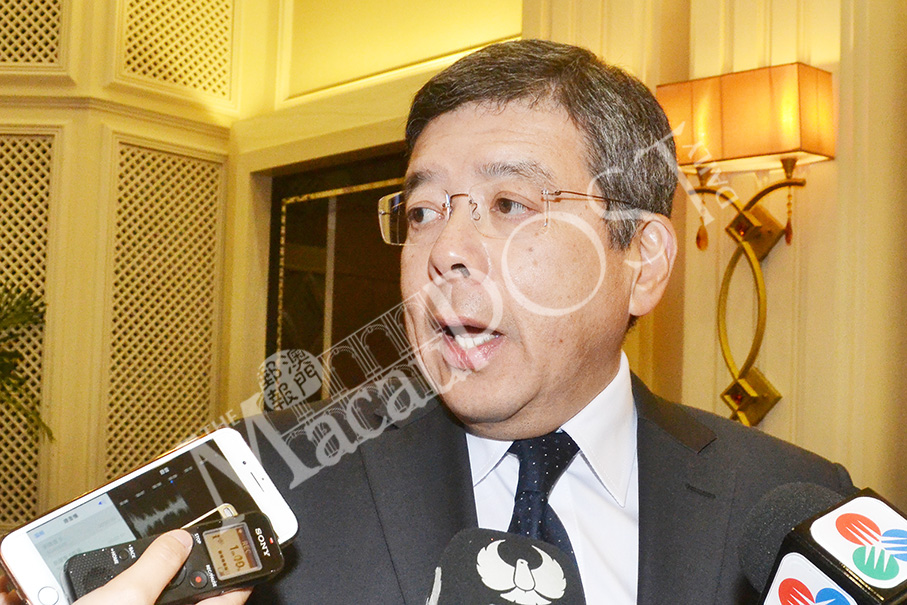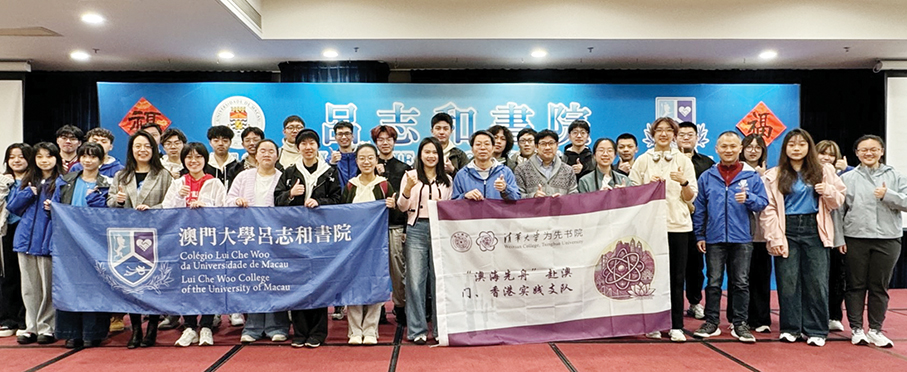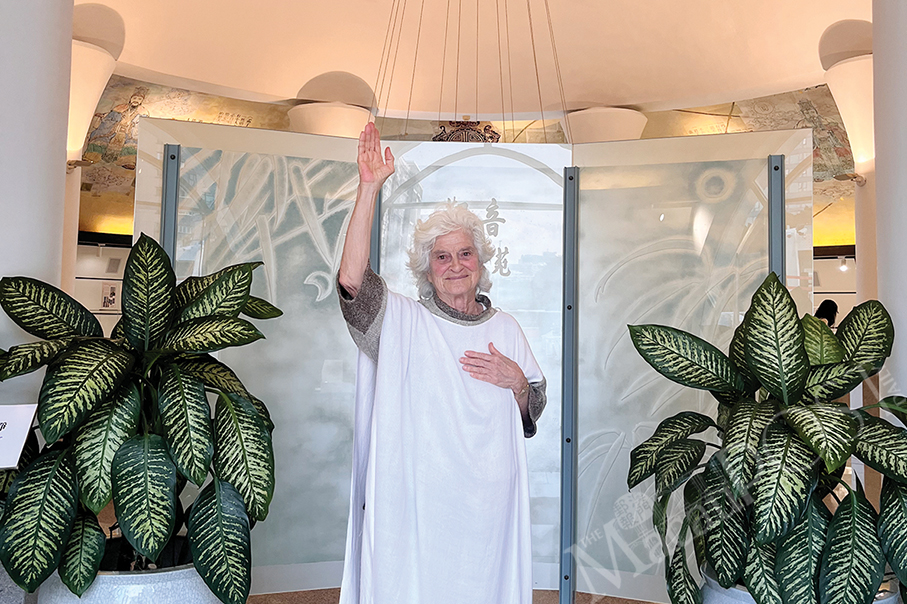Secretary for Transport and Public Works Raimundo do Rosario said yesterday that the local government will “surely” sign a reciprocal driving-licence deal with the mainland as “Macau is a part of China”.
Rosario also said he expected the local government to ink the deal with the central government “within a short space of time”.
Rosario made the remarks while speaking to reporters yesterday on the sidelines of a reception celebrating today’s International Workers’ Day hosted by the Macau Federation of Trade Unions (commonly known as Gung Luen) at Plaza Restaurant in Zape.
Rosario has been authorised to sign an agreement with the Ministry of Public Security on the reciprocal recognition of driving licences, according to an executive order published in the Official Gazette (BO) on April 16. The order did not say when and where the deal will be inked.
The local government first announced in October last year that it was planning a reciprocal driving-licence recognition agreement with the central government.
According to the Transport Bureau (DSAT), the deal will allow Macau driving licence holders to drive in mainland China – and vice versa. The mutual driving-licence recognition will only be applicable to cars, excluding other vehicles such as commercial vehicles, scooters and motorcycles, the bureau has pointed out.
According to the bureau, the point of the deal is that Macau’s car driving licence holders can get a mainland car driving licence without the need to take a driving test on the mainland and that car driving licence holders from the mainland can drive in Macau on their own driving licences.
Chief Executive Fernando Chui Sai On said during a Q&A session in the legislature’s hemicycle last month that the planned reciprocal driving-licence recognition aims to benefit local residents by making it more convenient for them to work and do business on the mainland. He also said that the deal would help young local people to pursue their career prospects on the mainland.
Civic leaders, activists, unionists and some lawmakers have slammed the government for “hastily” deciding to sign the deal with the central government without first launching a public consultation on the matter. They say that the mutual driving-licence recognition scheme would increase the number of traffic accidents in Macau due to the perceived “driving etiquette” differences between locals and mainlanders. They also say that the scheme would increase the already very heavy burden on Macau’s road network.
When asked by reporters yesterday about the clamorous opposition to the planned reciprocal driving-licence recognition by some segments of civil society, Rosario said that the deal “must” be signed as “Macau is a part of China”. He pointed out that Portuguese driving licences were recognised by the local authorities when the city was under Portuguese administration until the establishment of the Macau Special Administrative Region (MSAR) on December 20, 1999.
“We [the local government] can choose to do or not to do something. But for the reciprocal driving-licence recognition deal, we have no choice and therefore need to do [sign] it,” Rosario said.
Rosario also noted that the reciprocal driving-licence recognition scheme between Hong Kong and the mainland has been implemented for many years.
Rosario also pointed out that currently Macau and more than 100 countries and regions reciprocally recognise each other’s driving licences based on an international road traffic convention. “We recognise driving licences from so many countries. Why not for [mainland] China? Don’t you think it is a problem when Macau does not recognise driving licences from the motherland,” he said.
When asked by the media about the views expressed by some members of civil society, Rosario said that the local government “will surely tackle the [possible] problems resulting from [the reciprocal driving-licence recognition scheme between Macau and the mainland]. We will not choose not to do this thing [sign the deal] simply due to the ensuing problems.”
Rosario said that the reciprocal recognition deal “must be and needs to be” signed.
Rosario also said that the local government was waiting for the central government to complete its administrative procedures for the signing of the deal. Once the central government finishes all the procedures, the deal will be signed, the policy secretary said.
According to previous news reports, back in 2013 the Transport Bureau already presented a plan for a mutual driving-licence recognition deal with the mainland to the government-appointed Traffic Consultative Council. The bureau told the media at that time that the government did not have a timetable as to when the mutual recognition arrangement would be implemented.

Secretary for Transport and Public Works Raimundo do Rosario speaks to reporters at Plaza Restaurant in Zape on the sidelines of a May Day reception hosted by the Federation of Trade Unions (Gung Luen) yesterday. Photo: MPDG
PLEASE READ THE FULL ARTICLE IN OUR PRINT EDITION.









